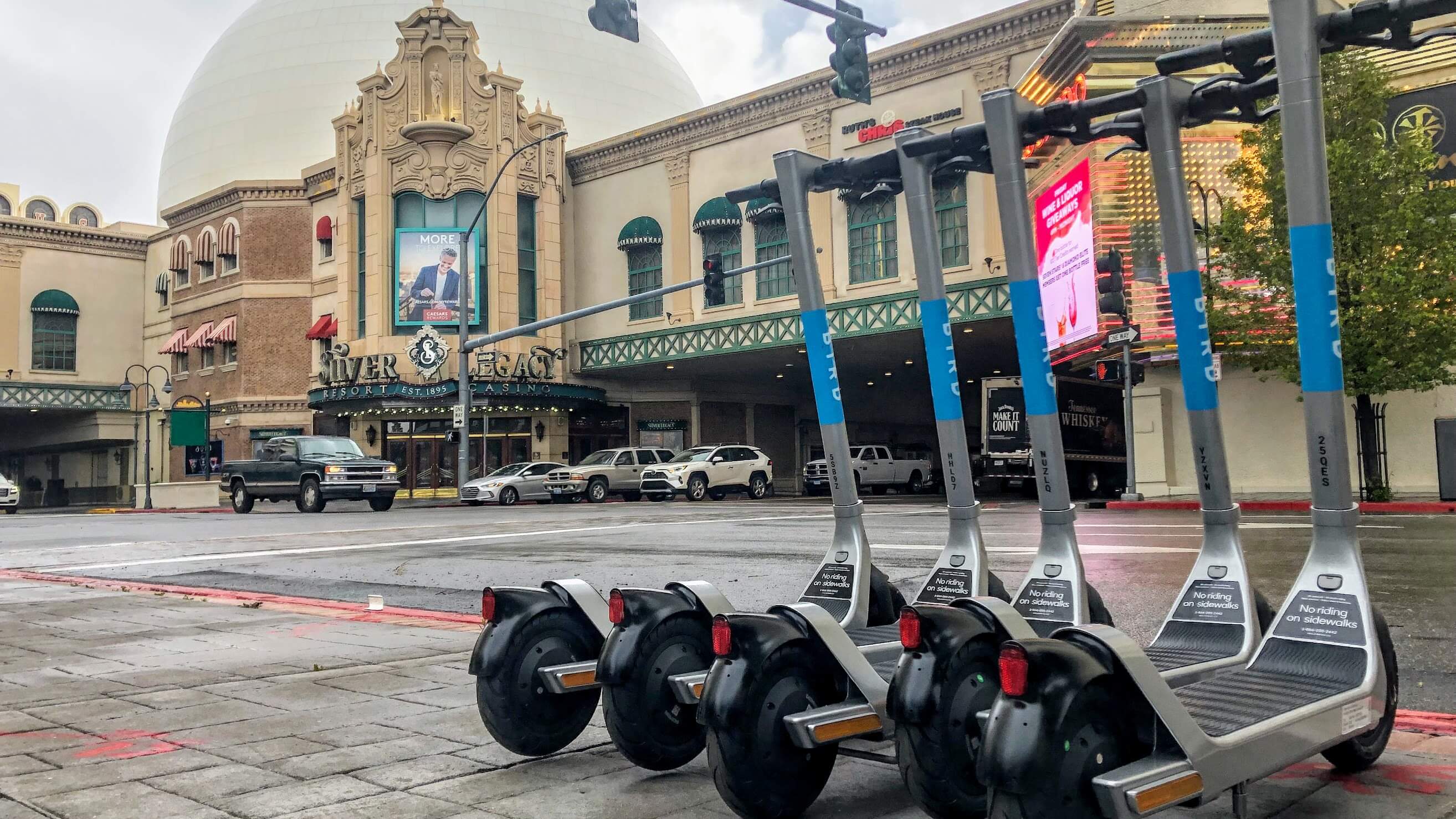One of America’s most iconic micromobility companies has filed for Chapter 11 — but some advocates say that could signal a more stable chapter for the industry on the whole, rather than its death knell.
Just before Christmas, Bird Global announced that it had entered bankruptcy, paving the way for the outfit to restructure its financial operations while still, theoretically, keeping its fleets of bikes and scooters running in more than 350 cities around the world.
That swan dive might seem like an ominous sign for the larger micromobility universe, considering that Bird was one of its earliest pioneers — and as of its September acquisition of Spin, its single largest player in North America. Several pundits, though, wondered whether the news might say more about the instability of venture capital speculation that was the wind beneath the company's wings than it does about the value of human-scaled modes themselves, which are becoming increasingly integral to city life.
"Sure, the margins are tight and profitability is still rare, but shared scooter and bike companies are becoming more integral to city life in ways we never thought possible," wrote Andrew Hawkins for the Verge. "The only thing that’s dead is the zero-interest rate-influenced era of unhinged investments and wildly skewed valuations that we saw at the end of the last decade. Hopefully now, with Bird filing for Chapter 11, we will see a new era of more responsible management and better pricing in order to ensure these systems remain viable for years to come."
Others, like Washington Post columnist Megan McArdle, blamed Bird's recent descent on its own miscalculations, including the company's rapid expansion into less-profitable markets and "betting on bigger batteries, rather than smaller ones that can more easily be swapped out, streamlining charging operations."
Those charging operations, meanwhile, were largely performed by contractors in the Bird's controversial Fleet Manager program, who were held responsible for repairing and redistributing vehicles, too, — and who, some say, were held to unrealistic standards to maximize the micromobility industry's notoriously thin profit margins.
Some say that system doesn't just incentivize gig workers to perform rushed vehicle maintenance and concentrate scooters in wealthier, high-traffic areas where they'd get ridden more, rather than spreading them to underserved neighborhoods with fewer mobility options. According to a recent Wired investigation, it's also proved financially devastating to some workers who were summarily released from their contracts when they missed their performance metrics, asked for time off, or simply were paid more than contractors in other markets. In some cases, these fleet Managers had taken on significant debt to buy vans, rent warehouses, and amass maintenance equipment, and were left holding the bag when their jobs evaporated overnight.
“I’ve worked all kinds of jobs,” one Oklahoma-based fleet manager told Wired. “I’ve never in my life felt so disposable.”
(Most other companies hire in-house staff to do repairs, though they may still lean on the gig economy to keep batteries fueled.)
Whatever Bird's stumbles — and to be clear, the company is definitely not alone — one thing that's not disposable is human-scaled mobility itself. Shared bike and scooter trips remained high even as many of the companies that provided them fell into turmoil this year; some companies like Lime have even found ways to translate those successes into modest but real profits. As volatile as this moment behind the scenes of our national transportation revolution might be, the collective appetite for small, shared modes is still growing on American streets, particularly as more people learn about the devastating costs of universal car dependency.
The question is what it will take to translate that appetite into stronger returns for investors, stronger subsidies from communities that want to integrate small vehicles into their transit systems, or some combination of the two. And if they can navigate this moment, hopefully Bird and all its competitors can soar to new heights.






